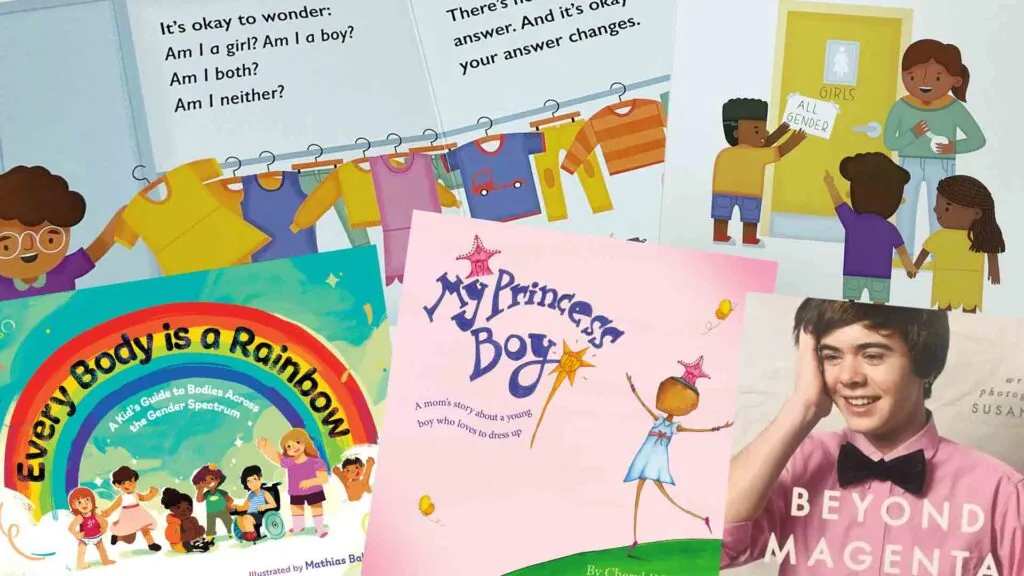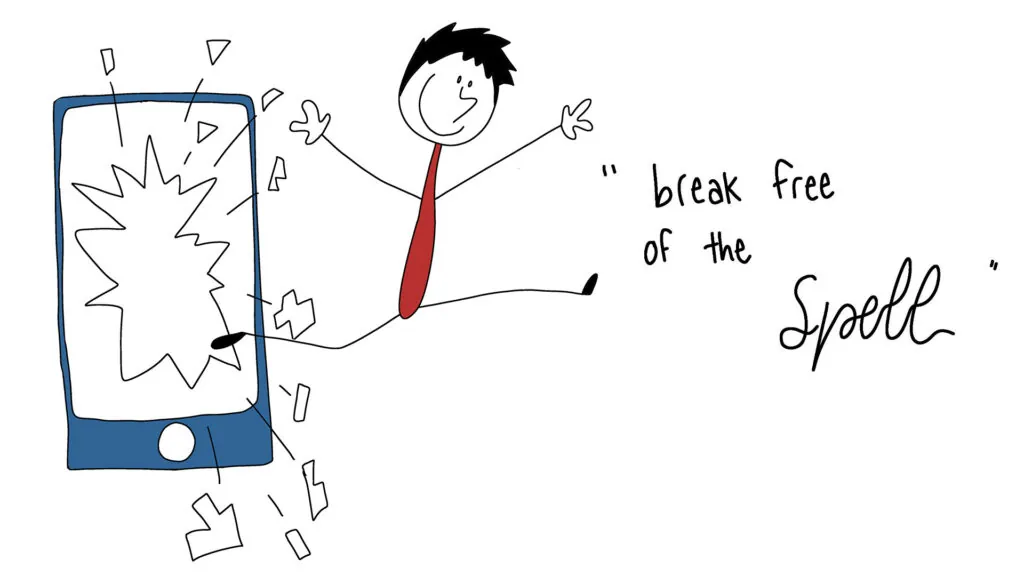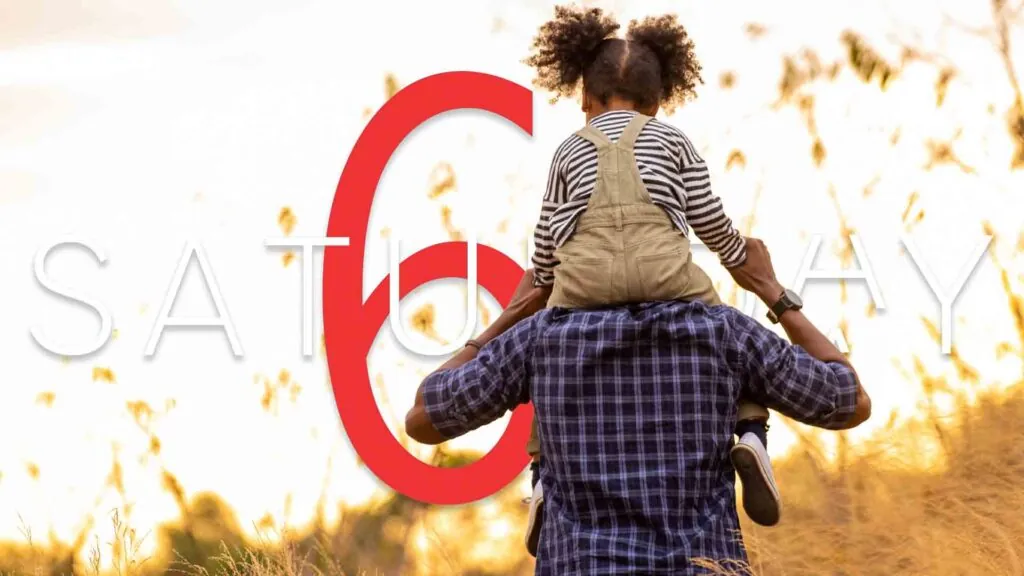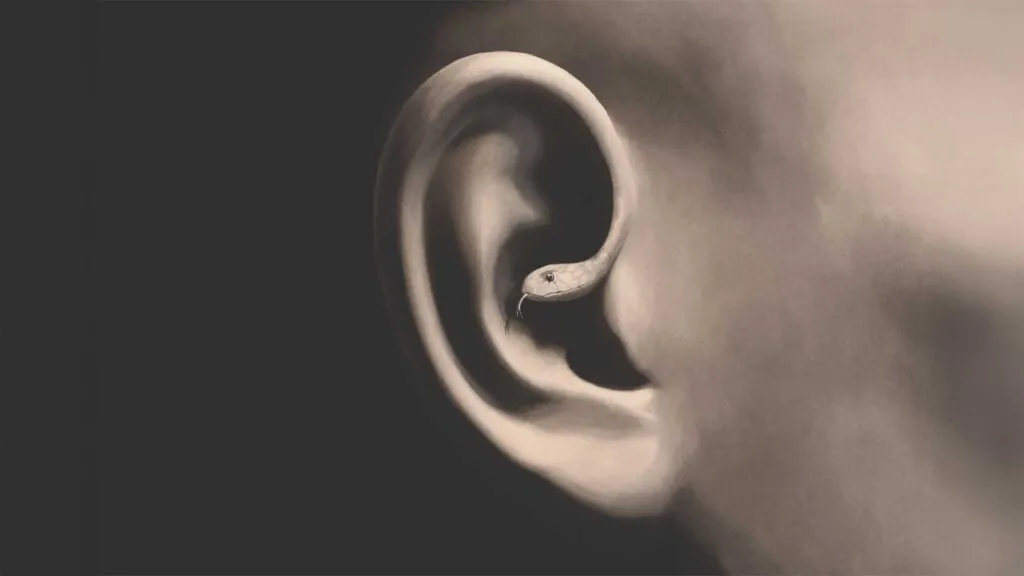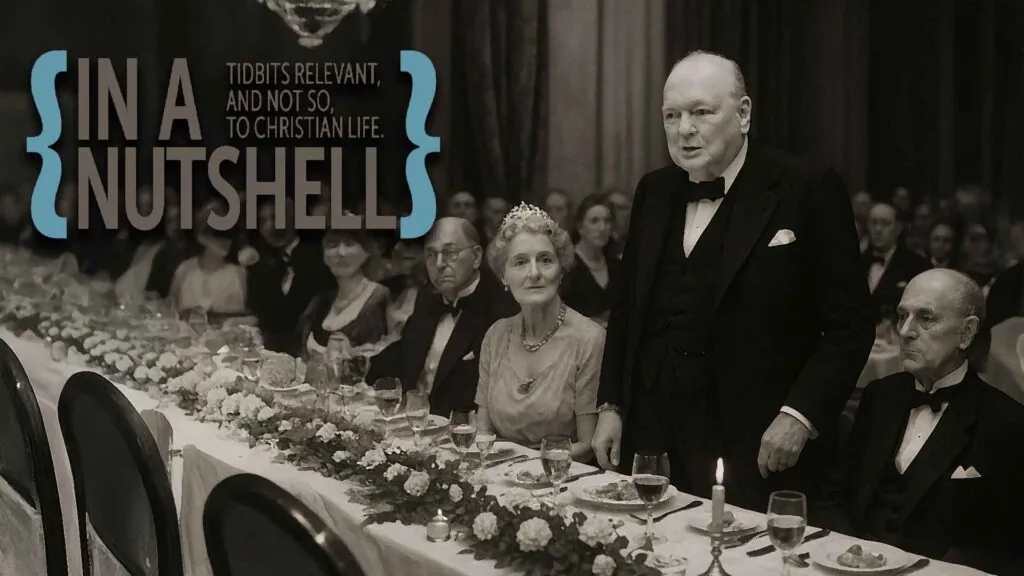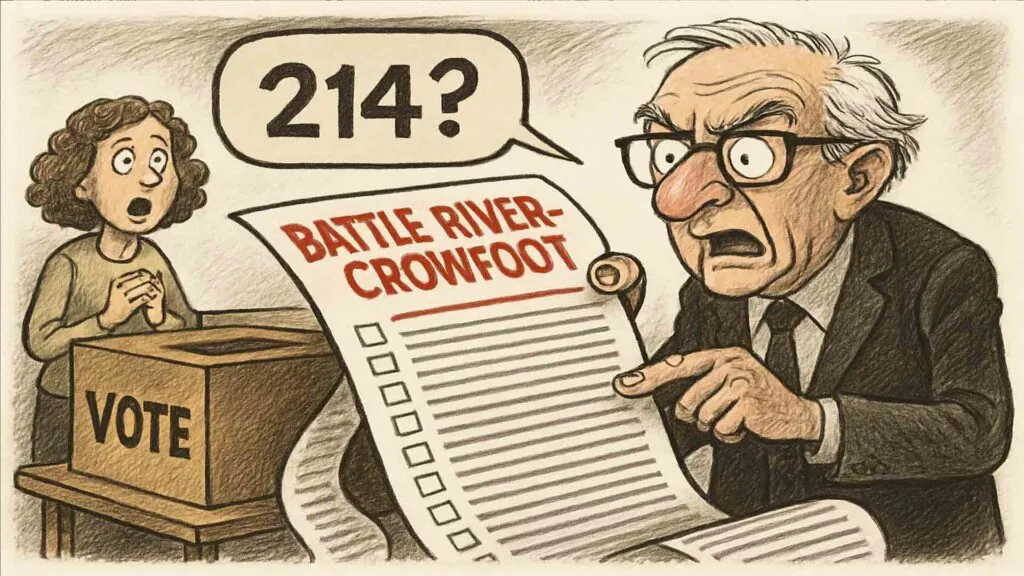Practicing the Sabbath: on living out the 4th Commandment
It is not uncommon. Under pressure at the office or on the job, at school or right at home, vacation can’t come soon enough.
“Ah,” we console ourselves, “Three weeks away from it all, filled with hiking, camping, touring, biking, sailing, and maybe even a trip to Disneyland itself.” When it finally arrives, we throw ourselves into our leisure, making the most of every moment, wringing every last drop of excitement out of our all too brief respite from the drag of our daily grind…and come home plumb worn out. We go back to working, lamenting the brevity of our respite, grudgingly facing the unwelcome demands of the job once more, trapped into knowing we have no other choice: it’s the only way to keep the wolf from the door.
Whatever happened to real, solid rest, the kind that refreshes our spirits so deeply it reinvigorates us all the way down to the very depths of our beings, or, as Psalm 23 would describe it, “restores our souls”?
Vacation is not enough
What happened is that we confused rest with respite, as if a 30-second timeout in the fourth quarter makes athletes as full of energy as when the game began. A vacation is merely a respite (which we all need, just like a good night’s sleep); it’s far from the kind of deep rest the Bible calls a “Sabbath.”
Vacations don’t cut it; real Sabbaths do. No wonder our Father commanded that we practice Sabbath every week and he used plenty of words to insist upon it. Have you ever noticed that in the NIV, the Exodus 20 version of the 4th commandment is 99 words long? The final five commandments, altogether, take up just 53 words. God has almost twice as much to say about remembering the Sabbath day than He does about murder, theft, adultery, lying, or coveting combined, suggesting to us that one of the most powerful defenses against immorality of all kinds is (did this ever occur to you?) a soul saturated to the full with God’s kind of deep rest.
And then, as if to give it even more firepower, would you observe that it’s the only commandment which reinforces its demand by insisting that we face up to the compelling reality that this is what God Himself did, as if to both warn us that we best follow our Creator if we know what’s good for us, and besides, call us to humble ourselves enough to learn just how to do it from His example.
If you came home tired from vacation, or, more seriously, if you sense a weariness in your soul so deep that not even a full night of sleep (induced by medication), or a day of surviving demands (eased by your regular dose of Xanax) gives you the kind of relief you crave, perhaps it’s time to seriously reconsider practicing Sabbath as devoutly as you practice your fitness routine. In other words, have you ever considered fitting, into the rhythm of your week, a 24-hour period where you stop living as a human “doing” and actually enjoy living as a human “being”?
If you’re even slightly curious enough to keep reading, then let me be audacious enough to prescribe for you the pathway to deep rest: watch how God rested, and then, go and do thou likewise. The commandment makes it as simple as imitating God. Of course, where it gets complicated is trying to figure out just how God did it. But He has not left us without a description:
He finished his work: “Thus the heavens and the earth were completed in all their vast array. By the seventh day God had finished the work He had been doing (Gen. 2:1-2a).
He savored the goodness of his workmanship: “God saw all that He had made, and it was very good (Gen. 1: 31).
He ceased from all working: “…so on the seventh day He rested (NIV footnote: “ceased”) from all His work. …because on it He rested (NIV footnote: “ceased”) from all the work of creating He had done (Gen. 2:2b, 3b).
Each dimension deserves such careful scrutiny, we’ll ponder them one at a time.
Finished work
God entered into his Sabbath by first having completely finished the work he set out to do during his “work week.”
If we are to enter into deep rest, we simply must get our work done first. The commandment is firm on this: Six days you shall labor and do all your work. Finish your homework, your housework, or your assignments at the office. If you have work that was supposed to have been finished during your six days of labor, and could have been finished, but wasn’t due to your own procrastination, I can virtually guarantee this: that undone work is going to infect any rest you try to find on your “day off.” It will weigh on you. It will preoccupy you. You’re compromised!
Now I can just hear it already: “My work is never done.” A mother’s work is never done. A farmer’s work is never done. A teacher’s work is never done.
True enough, but then God’s work is never done either. Jesus said that his father was always at his work to that very day (John 5:17). But, what was finished was the work of creating. That was completed. True enough: much remained to be done in this creation. There was no pizza or lasagna. Nobody had written poetry yet, and the only music came from birds because there were no violins. There was so much yet to do, which we call culture. But the work of creation itself was fully completed.
Every day has its task; every week, its duties; every meeting, its agenda. You want to know what really kills our rest? Work that should have been finished, and could have been finished, but isn’t finished.
Unfinished assignments absolutely bar the way into joyful rest. So, be like your Father. Do it. Get ‘er done, even if you have to work extra hard as your particular work week approaches its final day or hours. Nothing relaxes us more than being able to look back upon a truly finished task, be it anything from a reading assignment, having made the required number of sales calls, or having done our rounds in the hospital.
The finest picture of such profound rest in Scripture is the utterly still body of the One who had just said, “It is finished” lying quietly and calmly in a borrowed grave even while His spirit savored the joys of Paradise. Imagine the depth of His holy rest having fully drunk the cup of God’s wrath to the very last drop! Can there be any rest deeper than that? The wonderfully good news of the gospel is that, through Jesus, we are called and welcomed to enter into and savor that finished work. There is no richer Sabbath.
Savoring accomplished work
When He finished creating, God savored his accomplishment. Scripture puts it like this: “God saw all that He had made, and it was very good” (Gen. 1: 31). That is how He entered into His rest.
Now that is something most of us moderns hardly take the time to do. Look back? Savor what you’ve done? Who has time for that? Who even thinks of that? Especially on our days off! We’re just glad to be away from the scene of the grind.
I recall a breakfast I had with a friend, a highly paid professional in a tough line of work: lawyering! His iPhone lay next to his plate. His eyes darted toward it frequently as we munched on our muffins. I could tell he was preoccupied. I asked him, “Don’t you ever give yourself a break from that thing?”
“I can’t,” he said; “in fact, I can’t afford to.”
“When do you ever rest?” I probed.
“Well,” he said, “I try to rest on the weekends but….”
I waited. “But what?”
Then he opened a glimpse into his uptight world I’ve never forgotten. “I never get a full weekend of rest because already on Sunday afternoons, right around 3, every week, it starts,” he continued.
“What?” I asked.
“This tightness in my gut; I can just feel the pressure rising. The stuff waiting for me in my office on Monday morning starts forcing its way into my mind, and from that point on, I’m toast. I can forget about getting any more rest.”
“In other words,” I gently teased, “you actually show up at the office about 17 hours before your body gets there?”
“You’re not kidding!!” he moaned.
I suspect my friend has plenty of company. Our driven hearts are forever pushing us forward, even to the point that we are so focused on what lies ahead, Monday pushes itself up into our Sundays, as unbidden as acid reflux, and as sour.
Not so the Trinity! As God entered into His rest, this is the exercise He went through at the end of the sixth day: He looked backward. He surveyed his workmanship. He paused to delight over it. He admired the beauty of Eve, marveled at the masculinity of Adam. He saw all with His all seeing eye and rejoiced over every one of His works.
That’s the exercise God Himself went through as He entered his rest. He studied what He had done, and celebrated it. In fact, He ended every day savoring what He had done on that particular day, but at the end of the sixth day, He savored the whole panorama of His creativity, from the light He created the first day to the light-clothed humans He created on the sixth, and He rejoiced over all his works (Psalm 104: 31).
A second key to entering a place of deep rest calls us to imitate God and look back, savoring all that He enabled us to do during the previous six days. The doctor looks back in her imagination upon the faces of the patients she has treated. The waitress, the customers she has served. The trucker, the loads he delivered. The teacher, the lessons his students learned.
Looking back moves the soul from anxiety to celebration as it disciplines itself to survey the beauty of a steady stream of accomplishments, each a trophy to the God who was right there empowering us every step of the way. That simple exercise has immense power to lay a soul down into deep rest by stiff-arming the intrusions of future “undones” as it relishes the joys of past “dones.” For what the soul is doing at such moment is supercharging itself with wonder and gratitude at the remarkable faithfulness of God who was right there with us during every moment of those six days past, assuring it that so much went well, once again.
I wonder if my neighbors just might think I’m nuts. Like all good Lyndenites, I edge, trim and mow my lawn faithfully every Saturday. It’s a rite around here. When finished, I stow my equipment and then do something which, if they are watching, might suggest to them I’m a little “off.” I take a good ten minutes and just walk around my lawn, and yes, frankly, I admire what I and my equipment have just achieved! I marvel at the sharp edges around the flowerbeds and savor the smells of newly mown turf. Odd? No. Like God? Yes.
Now God did something there that is crucial to being able to rest. He affirmed his work as valuable; He gave it worth. He savored its beauty. He celebrated His accomplishment. The three persons of the Trinity rejoiced in what They had made, rejoiced in Their workmanship.
They stopped, turned around (unlike the other six days which were all forward looking, this was backward looking; from all the undone work ahead to the finished work behind), looked back, and They delighted in Their finished work.
Do you ever do that at the end of your work week? Your day of rest begins by looking back. Let’s say you deliver and pick up mail. Do you ever think back to all the people you serve every week by bringing them their mail? Think of the hundreds of people who every week find something in their mailbox they have just been waiting for – and you brought it to them. Now that is something to savor, to celebrate.
Most of us try not to think about our work on our day off. Not God. God entered his Sabbath by ruminating, savoring, delighting in what he had just done. One of the key elements of deep rest is savoring a sense of accomplishment. This is what shelters us from the tyranny of future tasks charging in and infecting our rest. You rest when you learn to resist this “Oh, there is so much I have yet to do” (which is very true for all of us) to “But look at what we have managed to accomplish.” We are so driven by the demands of the future that we have forgotten to pause and take delight in the regular accumulation of the accomplishments of our lives.
Ceasing from all work
There is a third Sabbath practice to consider, but be forewarned: you may not like this. In fact, you may think I’m just being a fussy old legalist. We cannot truly Sabbath, unless every 7th day we totally cease, as much as is reasonably possible, our daily work for 24 hours and refuse to come anywhere near it. We don’t even check our phones for work-related text messages. Why? Because of the explicit prohibition in the commandment itself: “On it you shall not do any work.” Worship? Yes! Play? Sure. Work? None. Zilch. Nada.
When deadlines, demands, homework and duties bear down on us relentlessly this may seem hard. Who can afford this, especially in today’s highly competitive, low profit margin, economy? Close up shop, one day a week? Ridiculous. Students stay away from studies a full day in every seven? Sure way to flunk out!
Really? Are you so sure it’s ridiculous? Have you checked that with conservative Southern Baptist Truett Cathy, who, from the beginning in 1946 insisted that his fast food Chick-fil-A restaurants be closed every Sunday? Today there are over 2,200 of them, and they are flourishing. In 2014 the chain was #9 in total profit among all fast food restaurants, but #1, by far, in profitability per store. Each store earned $3.2 million vs. second place McDonalds at $2.6 million. They have been #1 in customer service for years. Rested and cared for employees are much more industrious and compassionate, and the result is customer loyalty that creates long lines in the drive-in lane and tidy profits at the bank. And they are closed everywhere, every Sunday.
But perhaps that’s not convincing.
Then consider this remarkable story. My town of Lynden, Washington has a mother, Phoebe Judson, who founded our city, arriving here in 1871. She promoted Sunday closure. Here’s why.
In May, 1853, Phoebe and her husband Holden joined a covered wagon train near Kansas City hoping to reach Washington Territory by mid-October, a distance of more than 2,000 miles over the rough Oregon Trail. Like all wagon trains, they elected a captain. His word was the law. Well, they chose Rev. Gustavus Hines, only to be surprised one Saturday night when he announced the train would never travel on Sundays.
Phoebe was shocked. They had half a continent to cross, at oxen pace (15-20 miles per day on a good trail), with at least four mountain passes and innumerable river crossings ahead of them. She sat in her wagon and just fumed. One family deserted the train and joined another.
On their first Sunday, while they stood still, one train after another passed them by. But, being the daughter of a minister herself, Phoebe felt they had no choice but to honor their captain’s scruples.
They started out again on Monday, bright and early, only to reach their first river cross on Tuesday evening. A long line of wagons stretched out ahead of them, waiting for the single “ferry” to carry them across. They waited 3 days. On Saturday they resumed the journey, only to be told they would still rest the whole next day. Phoebe was livid. This made absolutely no sense to her. Still, the minister’s daughter obeyed.
Then, a few weeks later she began to see scores of dead oxen, mules and horses along the trail. They had been driven so relentlessly, they had collapse and died. She grudgingly admitted that perhaps the animals needed a day of rest.
A few weeks later, she ruefully admitted that maybe the men needed it too, since they walked most of the time. Then she slowly began to notice that as they worshipped, ate, rested and even played together on Sundays, it had a remarkably salutary effect upon people’s spirits. There was less grumbling, more cooperation. She even noticed that they seemed to make better time the other six days.
Finally, what totally sold her on the value of the Sabbath happened one Sunday evening: the family that had deserted them came limping into their campsite, humbly asking to rejoin them. She had assumed they were at least a week ahead; in fact, they had fallen behind. Their own wagon train had broken down! Of course they welcomed them back. And so it happened that they reached their destination in plenty of time, as friends, and out of the 50 head of cattle with which they began, only two were lost.
Conclusion
May I be so bold as to caution us about spiritualizing the meaning of the Sabbath commandment so much that we forget its literal and physical side? Bodily stepping entirely away from all work for 24 hours is clearly what is prescribed.
Its benefits are enormous. For one day, it moves us from life as a “human doing” to life as a “human being.” For one day, it compels us to recalibrate our hearts back to the stubborn fact that “…God is the only source of everything good, and that neither our work and worry nor His gifts can do us any good without His blessing” (L.D. 50, Q&A 125). For one day it allows our souls to catch up with our bodies, or vice versa! For one day it arrests our drive for profits by reminding us that our real wealth is not in what we have but in whom we love and in who loves us. For one day it slows us down enough to ease our anxiety over reaching our destination to actually enjoy the journey. And for one day it brings us back to that Light, in Whose Light, we see the light which brightens every day.
Rev. Ken Koeman is a retired pastor living in the quite restful town of Lynden, WA. A version of this article first appeared in Christian Courier and is reprinted with permission.
It was first printed in RP in February 2018....










